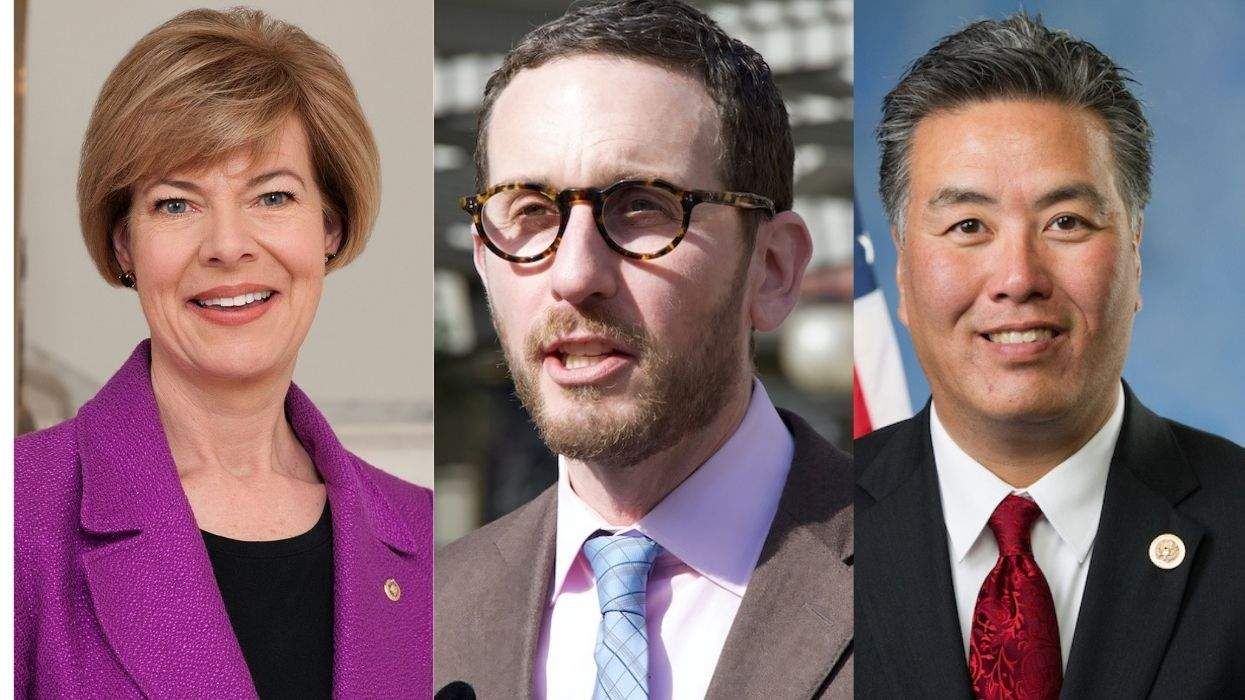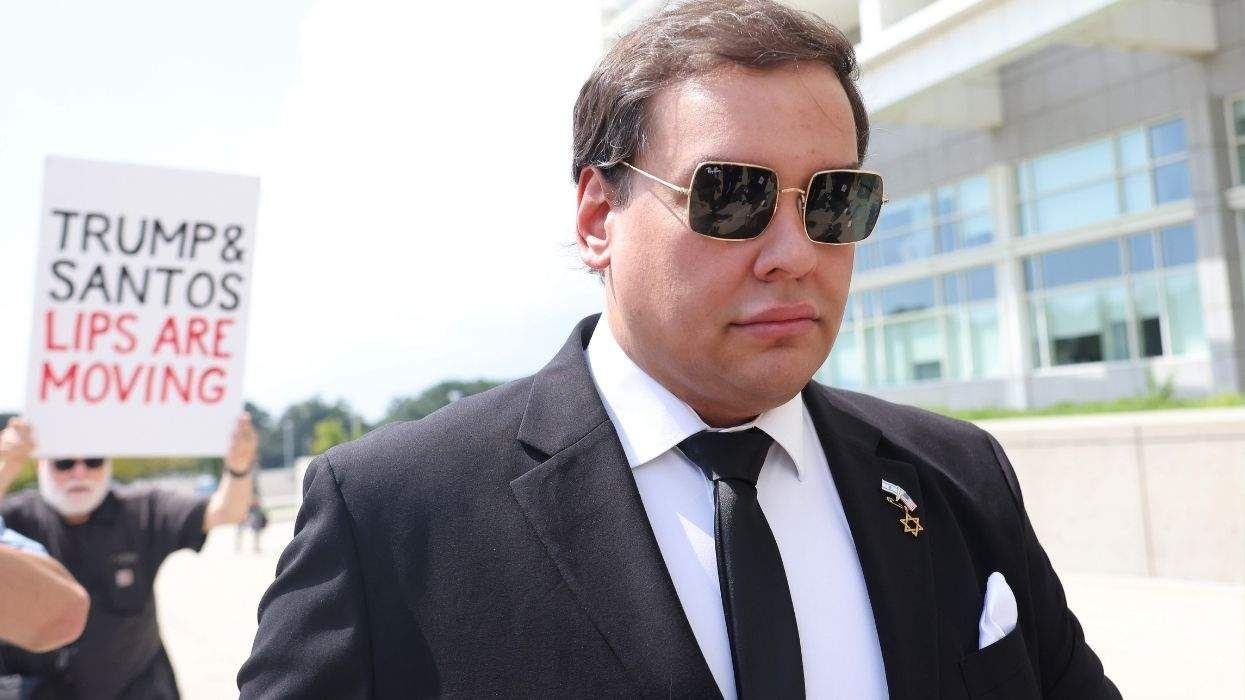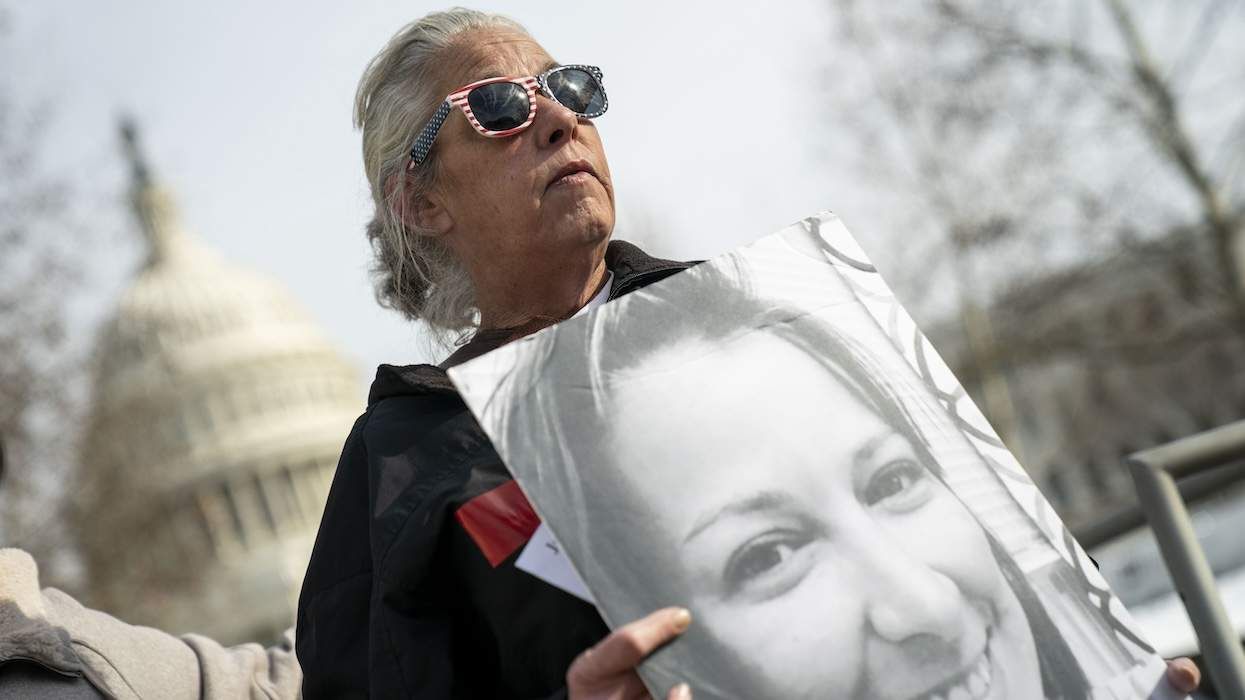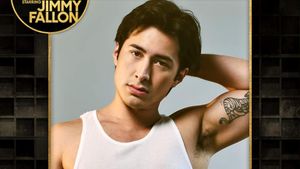Steven Menashi, nominated by Donald Trump to be a judge on a federal appeals court, appears to be one of Trump's worst judicial nominees yet.
Menashi, whose nomination was announced earlier this month, "has a history of denouncing women's marches against sexual assault, dismissing education about multicultural awareness and accusing a major LGBTQ group of exploiting the brutal murder of a gay student for political ends," according to a CNN KFile investigation.
Currently a White House aide, Menashi is nominated for a lifetime appointment to the U.S. Court of Appeals for the Second Circuit, which covers New York, Connecticut, and Vermont. Rachel Maddow recently reported on a law journal article Menashi wrote in 2010 endorsing "ethnonationalism" -- the idea that societies function better when they are not ethnically diverse. Now CNN has taken a look at other writings by the nominee, mostly from the 1990s and 2000s, when he was in college and law school.
In a 2001 editorial for The Dartmouth Review, a conservative student publication at Dartmouth College, he attacked the Human Rights Campaign for not giving the same attention to the rape and murder of 13-year-old Arkansas resident Jesse Dirkhising as it did to the murder of Wyoming gay college student Matthew Shepard.
"News coverage of the Dirkhising case has been strangely muted since the boy was discovered bound and gagged in September three years ago," Menashi wrote. "The homicide, you see, is politically sensitive. Dirkhising's admitted killers are a gay couple who say that the boy's death was a case of statutory rape 'gone wrong.'"
HRC, "which has incessantly exploited the slaying of Matthew Shepard for both financial and political benefit, has not said one word about Jesse Dirkhising," he continued. "In fact, despite some media queries, they consistently evade the issue."
He said he did not think the Dirkhising murder "somehow establishes a widespread correlation between homosexuality and homicidal tendencies," but he contended that HRC "is guilty of valuing lives instrumentally, according to political calculations."
The Washington Times, a right-leaning newspaper, had critiqued the disparity in coverage of the Dirkhising and Shepard cases a few years earlier. Time contributor Jonathan Gregg, however, responded to the Times piece by explaining that the two cases weren't comparable.
"A red herring worth addressing at the outset is the failure to distinguish between homosexuality and pedophilia, which creates a false parallel at the core of the Times' argument," Gregg wrote. "A double standard would be in effect had the media ignored a situation where two gay men killed a straight man for being straight. But sex with children is a crime regardless of the sexes involved, and is not synonymous with homosexuality."
"Matthew Shepard died not because of an all-too-common sex crime, but because of prejudice," Gregg added. That made Shepard's death an example of bigoted attitudes still held by many people, and something from which the world can learn a lesson, he said, while "Jesse Dirkhising's death gives us nothing except the depravity of two sick men."
An editorial written by Menashi for The American Enterprise in 2000 criticized colleges for offering gay-only dormitories, saying the practice was hypocritical, given academia's opposition to the military's "don't ask, don't tell" policy. "University administrators insist troops in mortal combat should be able to handle the tension of living in mixed quarters," he wrote. "But it turns out that college kids living in dorms and frat houses, threatened by such dangers as beer kegs and basketball games, are quite a different matter. ... The situation is so dire that colleges nationwide are establishing separate barracks for gays, not only as a haven from homophobic sophomores, but also to guard against emotional troubles gay students face in mixed living quarters."
Other writings by Menashi denounced campus "Take Back the Night" marches against sexual assault, saying they "charge the majority of male students with complicity in rape and sexual violence"; defended a "ghetto party" held by a largely white fraternity; and took the side of Italian Prime Minister Silvio Berlusconi, who had said Western civilization was superior to Islamic societies. Berlusconi eventually apologized for the remark.
Some conservative commentators offered a defense of Menashi. In the National Review, Ed Whelan wrote, "Whatever policy positions Menashi held or holds have little or no bearing on his role as a judge if Menashi understands judging to be distinct from politics and if he embraces an interpretive methodology that enforces, rather than blurs, that distinction. All indications are that he does."
CNN sought comment from the Department of Justice on Menashi's writings. A spokesman responded, "Mr. Menashi is exceptionally qualified to serve as a judge on the Second Circuit. Attempts to blatantly mischaracterize decades-old articles he wrote before he was even in law school do not change that." He added that Menashi "looks forward to answering any questions senators have when he testifies before the Senate Judiciary Committee." A hearing on his nomination has yet to be scheduled.
HRC, however, said Menashi's record is unfitting for a federal judge. "Nominating a person who has exploited and downplayed the murder of Matthew Shepard to a lifetime seat as a federal judge is offensive and appalling and yet another low point for the Trump-Pence White House," said a statement issued by HRC President Alphonso David. "At a time when violence and discrimination against LGBTQ people other marginalized communities is on the rise in this country, the last thing we need is another judicial nominee who does not recognize LGBTQ people as people worthy of basic respect and protection under the law. Steven Menashi is not fit to serve on any judicial bench, much less a court one step down from the Supreme Court. He should withdraw, and if he doesn't, he should be rejected by the Senate."




































































Charlie Kirk DID say stoning gay people was the 'perfect law' — and these other heinous quotes